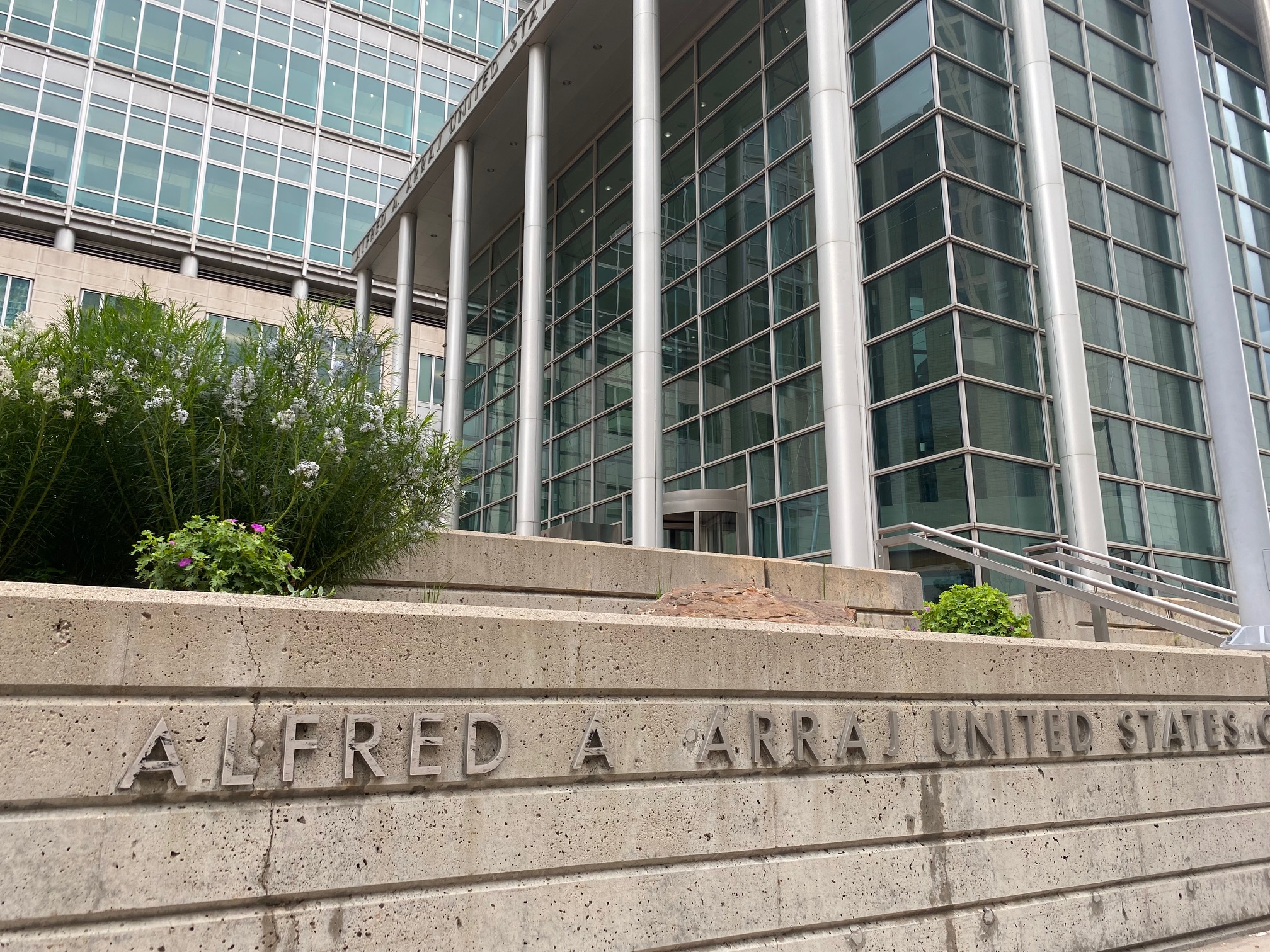Plaintiffs see voter ‘intimidation’ in what Colorado defendants liken to ‘civics project’

A 2021 door-knocking campaign launched by right-wing election deniers in an attempt to prove widespread fraud in Colorado’s voting systems is at the center of a federal civil rights lawsuit that began in Denver on Monday.
A coalition of voting rights groups alleges the campaign constituted “objectively intimidating conduct” in violation of civil rights laws. Attorneys for the defendants, a trio of Colorado election conspiracy theorists, liken the volunteer canvassing drives they organized to a “high school civics project.”
Ashe Epp, Holly Kasun and Shawn Smith are named as defendants in the lawsuit, which was filed in the U.S. District Court of Colorado in 2022 by attorneys with the liberal nonprofit Free Speech For People, on behalf of the Colorado NAACP, the League of Women Voters and Mi Familia Vota.
GET THE MORNING HEADLINES DELIVERED TO YOUR INBOX
The plaintiffs allege that the “voter verification” canvassing carried out by U.S. Election Integrity Plan — a group co-founded by Epp and Kasun and for which Smith volunteered — violated the Voting Rights Act of 1965 and the Enforcement Act of 1871, also known as the Ku Klux Klan Act for the white supremacist paramilitary group it targeted in the post-Civil War era.
The lawsuit seeks an order “enjoining (the defendants) from any future intimidating actions,” which attorney Amy Erickson said during opening arguments would send a message to similar groups ahead of the 2024 election.
“USEIP’s door-to-door campaign, coupled with its violent rhetoric and widespread attempts to suggest that Colorado’s elections are neither safe nor secure, constitutes objectively intimidating conduct” in violation of the VRA and the KKK Act, Erickson said.
Scott Reisch, an attorney for Smith, said the canvassers had been “nothing but kind, courteous and polite to voters.” Cameron Powell, an attorney for Kasun, called the suit “lawfare” that “simply cannot fit in any case law on intimidation.”
Epp, representing herself, called the voter verification canvassing an “entirely lawful citizen-led effort to ensure the integrity of our elections.”
“This experience has radically reshaped my life,” Epp said. “Because of the plaintiffs, my name is forever attached to the Ku Klux Klan.”
Hunting for ‘discrepancies’
The trial began with several hours of testimony from Smith, a retired Air Force colonel who said he began to doubt election results when he read media coverage on Election Day 2020 reporting high turnout and voter enthusiasm — an impression that he said didn’t match his own experience and “struck my curiosity.”
Within days, he testified Monday, he had come to suspect Colorado’s elections were fraudulent, based on what he described as anomalous voter turnout data and security vulnerabilities that were evident in voting systems manuals and other official documentation he reviewed. In December 2020, Smith met Epp at a hearing on “election integrity” held by Republican lawmakers at the state Capitol, and eventually became part of the “core team” of USEIP volunteers.
Over several months in 2021, USEIP canvassers, using voter files from the secretary of state’s office, knocked on approximately 9,000 doors in at least four Colorado counties to hunt for “discrepancies” that would substantiate their allegations of fraud. In some cases, USEIP submitted affidavits documenting alleged discrepancies to local law enforcement, but no action was taken.
Claims that the 2020 election was fraudulent or compromised have been debunked by elections officials, experts, media investigations, law enforcement, the courts and former President Donald Trump’s own campaign and administration officials.
Smith said he had personally canvassed around 75 homes. He acknowledged he may have been armed while knocking on doors, but he said that he typically carries a concealed firearm and that it wouldn’t have been visible to any contacted residents.
Plaintiffs’ attorneys pressed Smith on comments he made during a speech at a Castle Rock church in February 2022 — months after the canvassing efforts had ceased. During the brief speech at the event hosted by far-right group FEC United, Smith claimed he had evidence implicating Colorado Secretary of State Jena Griswold in election fraud and said that anyone involved in election fraud “deserved to hang,” adding that “sometimes, the old ways are the best ways.”
Smith denied that his speech, during which he also said he supported “due process,” was a call for extrajudicial violence. He claimed his comment about the “old ways” referred to “accountability.”
“If you’re involved in election fraud … that is an act of treason,” Smith said during testimony. “Hanging is one of the methods of execution when treason has been found in a court of law.”
All three defendants were present in Washington, D.C., on Jan. 6, 2021. Smith was captured on video as part of a pro-Trump mob that clashed with police outside the U.S. Capitol. He testified Monday that he had approached police clad in riot gear to “rationally and calmly” explain to them that protesters were entitled to enter the “people’s House,” and was subsequently struck on the back of the head with a baton.
But Judge Charlotte Sweeney shut down several lines of questioning throughout the day relating to the Jan. 6 insurrection and Smith’s wider views on 2020 election conspiracy theories. Testimony in the trial is scheduled to continue throughout the week.
“This hearing is not about Jan. 6. This hearing is not about the Colorado secretary of state. It’s not even really about the validity of the election,” Sweeney told the parties. “I want you all to focus in on what we’re talking about, which is whether these three individuals intimidated voters.”
SUPPORT NEWS YOU TRUST.
